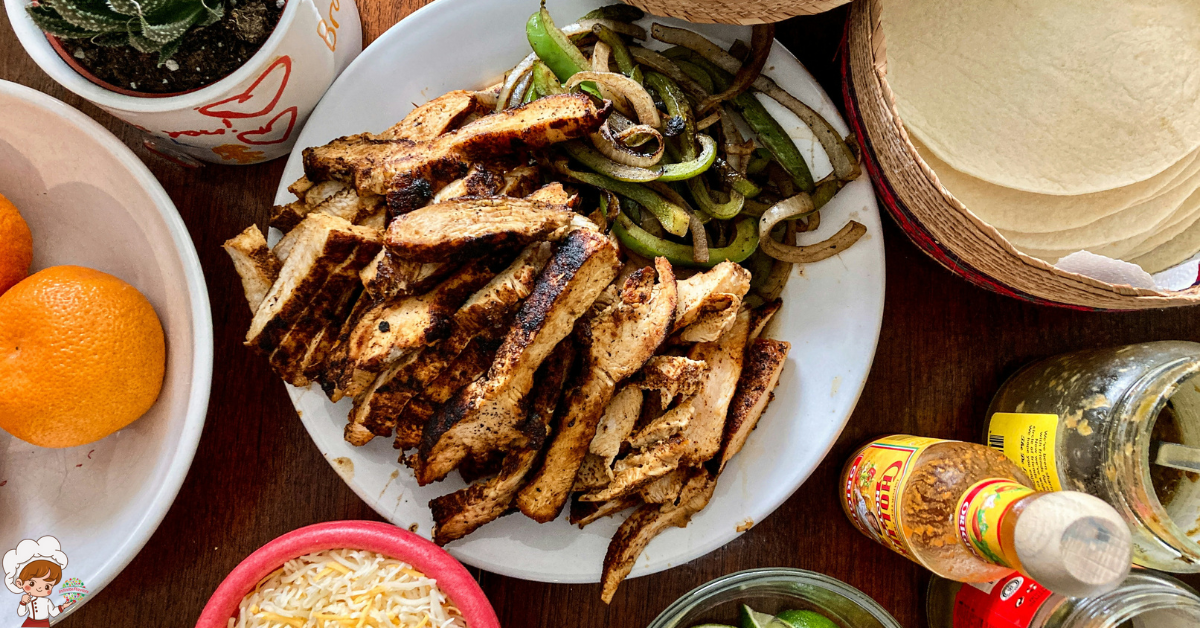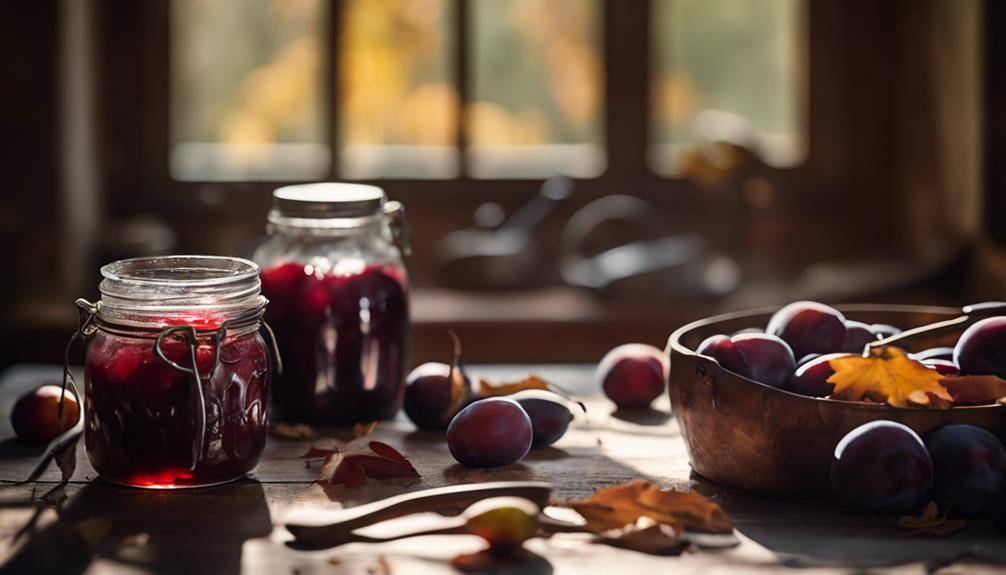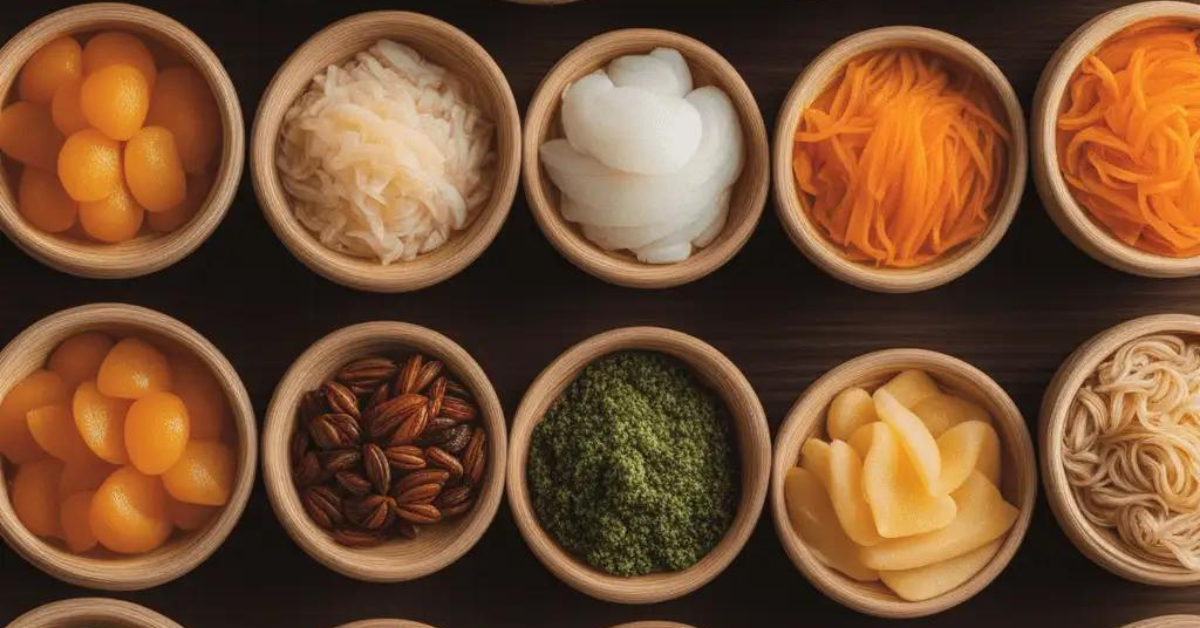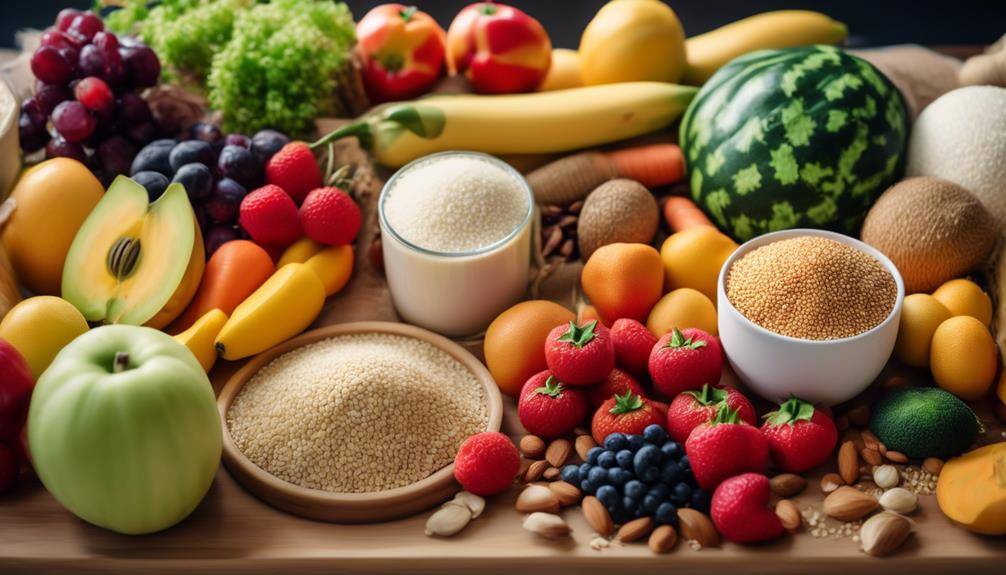The Amazing Story of Hummus with Vegetable Sticks
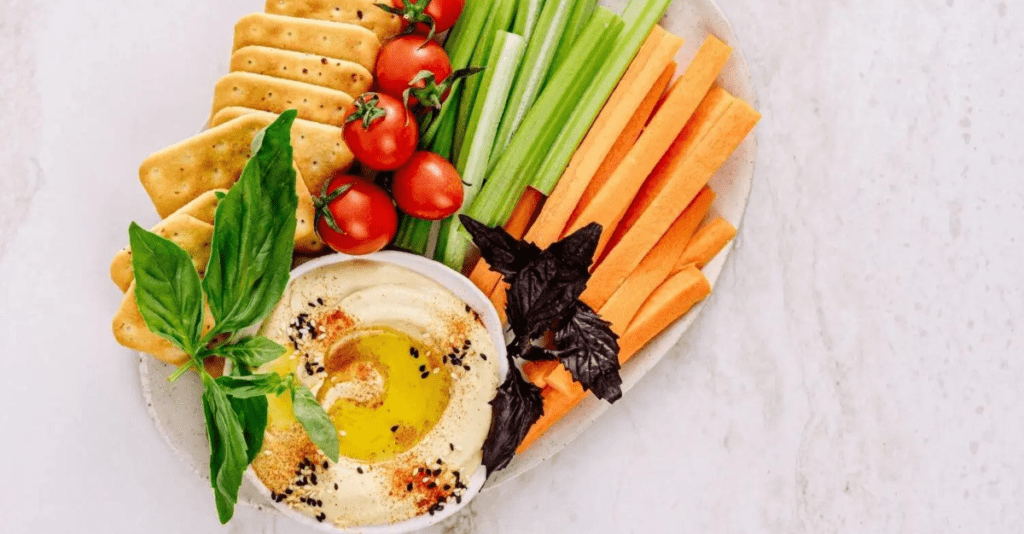
Hummus with Vegetable Sticks; Join us on a culinary exploration as we dive into the rich history and cultural tapestry of the Middle East to unravel the origins of a beloved dish—Hummus with Vegetable Sticks. This iconic combination of creamy chickpea puree, olive oil, and a rainbow of fresh vegetable sticks not only tantalizes taste buds but also serves as a delicious bridge to centuries-old traditions and the warm hospitality of the Levant.
Roots in the Levant – A Centuries-Old Tradition:
Hummus, derived from the Arabic word for chickpea, has deep roots in the Levant region, stretching back centuries. The earliest iterations of this humble dish were simple combinations of mashed chickpeas, tahini, olive oil, and spices. The Levantine people, resourceful in their use of local ingredients, turned this basic mix into a versatile staple, laying the foundation for what we now know as Hummus.
The Versatile Chickpea – A Nutrient-Rich Legacy:
Central to the story of Hummus is the chickpea, a protein-packed legume that thrives in the arid landscapes of the Middle East. The cultivation of chickpeas in the region dates back to ancient times, and their nutritional richness made them a staple in the diet of Levantine communities. With its versatility and ability to thrive in harsh climates, the chickpea became a symbol of sustenance and resilience.
From Traditional Dish to Global Icon:
As immigration and globalization spread Middle Eastern cuisine to the far corners of the world, Hummus transcended its regional roots to become a global phenomenon. The pairing of Hummus with Vegetable Sticks, in particular, reflects the evolution of this dish from traditional fare to a modern, health-conscious snack enjoyed by people of diverse cultures.
Symbol of Sharing and Hospitality:
Hummus with Vegetable Sticks is more than a snack; it’s a symbol of sharing, community, and the warm hospitality ingrained in Middle Eastern culture. Traditionally served on a communal plate, the act of dipping fresh vegetable sticks into creamy hummus embodies the communal spirit of breaking bread together, fostering connections, and creating shared moments of joy.
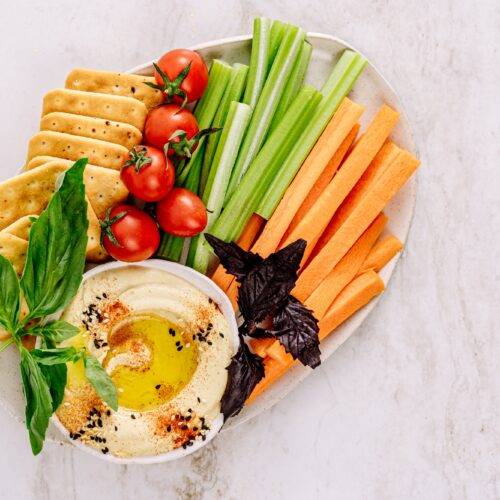
Hummus with Vegetable Sticks
Ingredients
For Hummus:
- 1 can 15 ounces chickpeas, drained and rinsed
- 1/4 cup tahini
- 1/4 cup extra-virgin olive oil
- 1 clove garlic minced
- 1 teaspoon ground cumin
- Juice of 1 lemon
- Salt to taste
- 2 tablespoons water adjust for desired consistency
For Vegetable Sticks:
- Carrot sticks
- Cucumber sticks
- Bell pepper strips assorted colors
- Celery sticks
Instructions
- Prepare the Hummus: a. In a food processor, combine chickpeas, tahini, olive oil, minced garlic, ground cumin, lemon juice, and a pinch of salt. b. Blend the ingredients until smooth, scraping down the sides as needed. If the mixture is too thick, add water gradually until you achieve your desired consistency. c. Taste and adjust salt and lemon juice as needed.
- Prepare the Vegetable Sticks: a. Wash and peel (if necessary) the carrots and cucumbers. b. Cut the carrots, cucumbers, bell peppers, and celery into sticks of similar lengths, suitable for dipping.
- Arrange and Serve: a. Transfer the hummus to a serving bowl, creating a well in the center. b. Drizzle a bit of olive oil on top of the hummus and sprinkle with a pinch of cumin for garnish. c. Arrange the vegetable sticks around the hummus bowl or on a separate plate.
Conclusion: Hummus with Vegetable Sticks
As we wrap up our culinary odyssey through the history of Hummus with Vegetable Sticks, we find ourselves immersed in a story that transcends time, borders, and palates. What began as a simple blend of chickpeas, tahini, and olive oil in the kitchens of the Levant has evolved into a global phenomenon, captivating taste buds and fostering connections across cultures.
Hummus with Vegetable Sticks is not merely a dish; it’s a celebration of tradition, a testament to the enduring popularity of Middle Eastern flavors, and a symbol of shared moments around the table. In each dollop of creamy hummus and every crisp bite of fresh vegetable, there’s a taste of the rich tapestry of Levantine culture, where food is not just sustenance but a form of expression and a gesture of warmth.
The global embrace of this dish reflects its ability to bridge culinary divides and bring people together. Whether enjoyed in a bustling Middle Eastern market, a family kitchen, or a contemporary urban café, Hummus with Vegetable Sticks invites us to partake in a shared experience that goes beyond the act of eating. It’s an invitation to celebrate the diversity of our world, one dip at a time.
So, as you indulge in the delightful pairing of hummus and vibrant vegetable sticks, relish not just the flavors but the stories woven into each ingredient. It’s a journey that spans generations, continents, and the universal language of food. Here’s to the timeless appeal of Hummus with Vegetable Sticks—a dish that continues to unite, nourish, and delight across cultures and borders.





